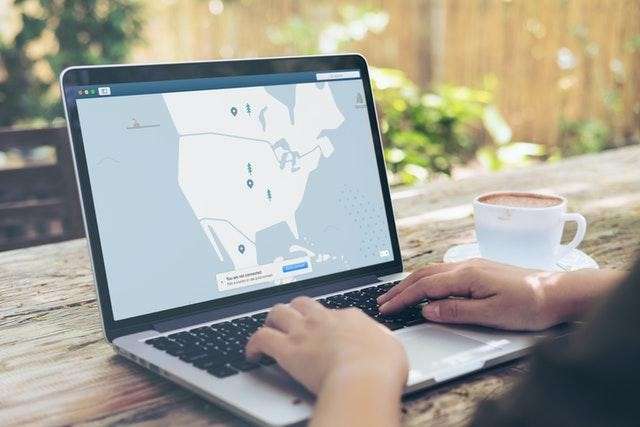A Virtual Private Network (VPN) enables you to connect to a private network over the internet securely and privately. It creates an encrypted connection, also known as a VPN tunnel. The VPN tunnel handles all the internet traffic and communication securely.

Different Types of VPN Services
There are generally two types of VPNs, remote access and site-to-site VPN. Remote Access VPN enables you to remotely connect to a private network and access all its services and resources. The secure, private connection between the user and the private network occurs online.
Remote Access VPN is helpful to home and business users who want to improve their internet security and privacy. Home users typically use VPN services to bypass geolocation restrictions on the internet to access blocked websites. An employee can use remote access to connect to a company’s private network and remotely access files and resources.
Large enterprises typically use a Site-to-Site VPN, also referred to as Router-to-Router VPN. Organizations with multiple locations use Site-to-Site VPN to connect each location to another.
When offices within the same organization use a Site-to-Site VPN to connect to each other, it is called an intranet-based VPN. When an organization’s office uses a Site-to-Site VPN to connect to another organization, it’s called an Extranet-based VPN.
If you’re still torn between the decision to use and not use a VPN, here are the most relevant reasons you should consider investing in one.
1. Data Security
Your internet service provider (ISP) has access to your internet data. After all, you’ll need to go through their network to get into the internet. Your ISP knows when, where, and how you browse. Most ISPs do their best not to look at that data or use it, but you can use a VPN if you prefer privacy.
A VPN does this by obscuring your IP address from the ISP. Your data is important to criminals, but there are also industries built around it as a resource. Many apps and internet service companies mine your private data for their own ends, most notably social media companies. If you are uncomfortable with the notion, a VPN will prevent apps and websites from attributing data to your computer’s IP address. VPNs also limit the collection of your location and browser history.
VPNs provide privacy from the government as well. Although democratic governments have strong rights and laws, government agencies can still request your data from private companies like ISPs, or carry out mass surveillance. The desire to hide personal data is even more critical in nondemocratic countries as users seek alternative information, resources, and an escape from their government’s grip.
2. Access to Geo-Blocked Content
Streaming is a rising media form. It is convenient, cheap, and accessible, but sometimes, its accessibility has restrictions. Due to media rights, some media properties are not available in certain areas.
While the streaming services would like you to adhere to their rules, a VPN gives you the freedom to access restricted content. A VPN spoofs your location, so it looks like you are accessing the content from another place.
3. Secure Remote Work Environment
The data encryption features of a VPN are beneficial for remote or away from station employees. Employees can access the office network and look at sensitive data without compromising it using a VPN. Encryption makes it hard to read or intercept information, keeping it safe.
Public wifi spots are convenient but are also a huge security risk. While browsing the internet and using it for sensitive stuff, someone may be snooping on your activities.
Using a VPN protects your data on other networks by hiding your browsing history, account passwords, banking information, and more from cybercriminals.
Choosing the Right VPN
There are many VPNs to choose from. Discerning the right one for you can be demanding. Newbies and those looking to change providers can get lost in the options. You can weigh the options according to the following criteria:
Privacy and Security
Central to a VPNs security is its encryption protocol which defines how the app and server connect with each other along with the methods used to send and encrypt data. A secure VPN will use high-end encryption like Blowfish and AES (Advanced Encryption Standard).
You should also choose a VPN with a no-logging policy if privacy is important to you. No-logging means the VPN will only collect essential information about your session and avoid information that others can use for tracking you.
Speed
While some VPNs tend to slow down a connection, a select number of providers do everything in their power to deliver fast and secure connections. That way, you don’t have to ask yourself, “why is my computer so slow?”
Cost
There are free versions of major VPNs out there, but you won’t get the best service from them. The paid additions offer more options and services. Which one you choose depends on how often and heavily you use the VPN. Most VPNs have short-term plans, a week or a month, and yearly or multi-year plans. The longer-term plans can offer significant savings.
Easy-to-use
You will likely need to install and use the VPN on multiple devices, so you need it to have an intuitive user experience. You can use online reviews to get an idea of how easy a VPN is to use.
Secure Your Data With a VPN
Privacy and security are necessary for your private and work life. Use a secure VPN to protect your data and the information you share with others. You can also use a VPN to access geo-blocked services and improve your internet services. From the many options in the market, choose one that will work for your circumstances, uses, and budget.

